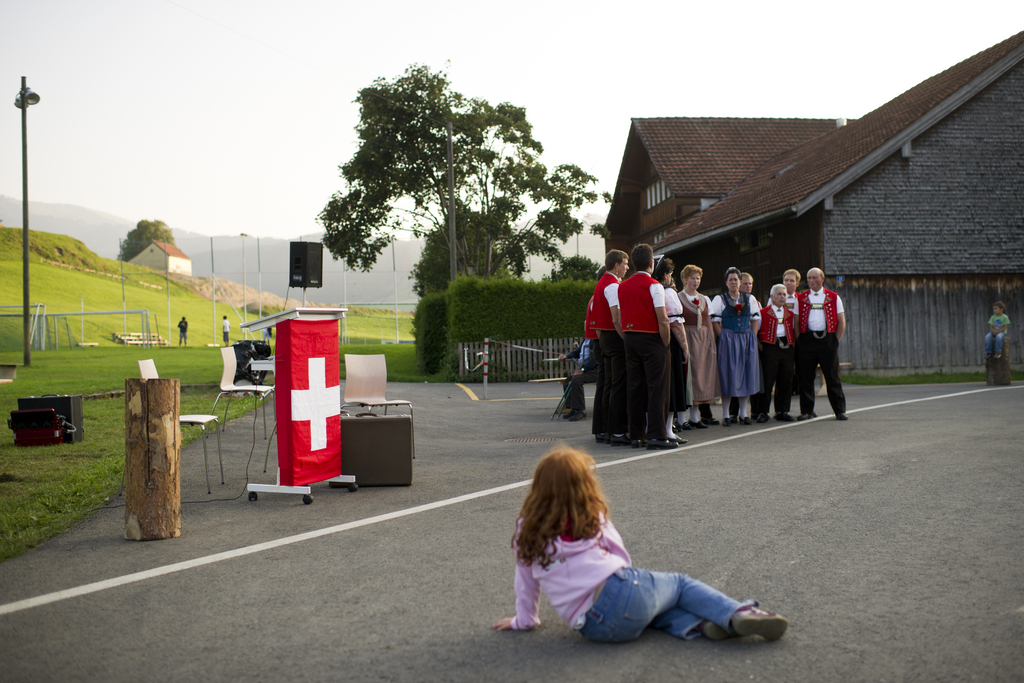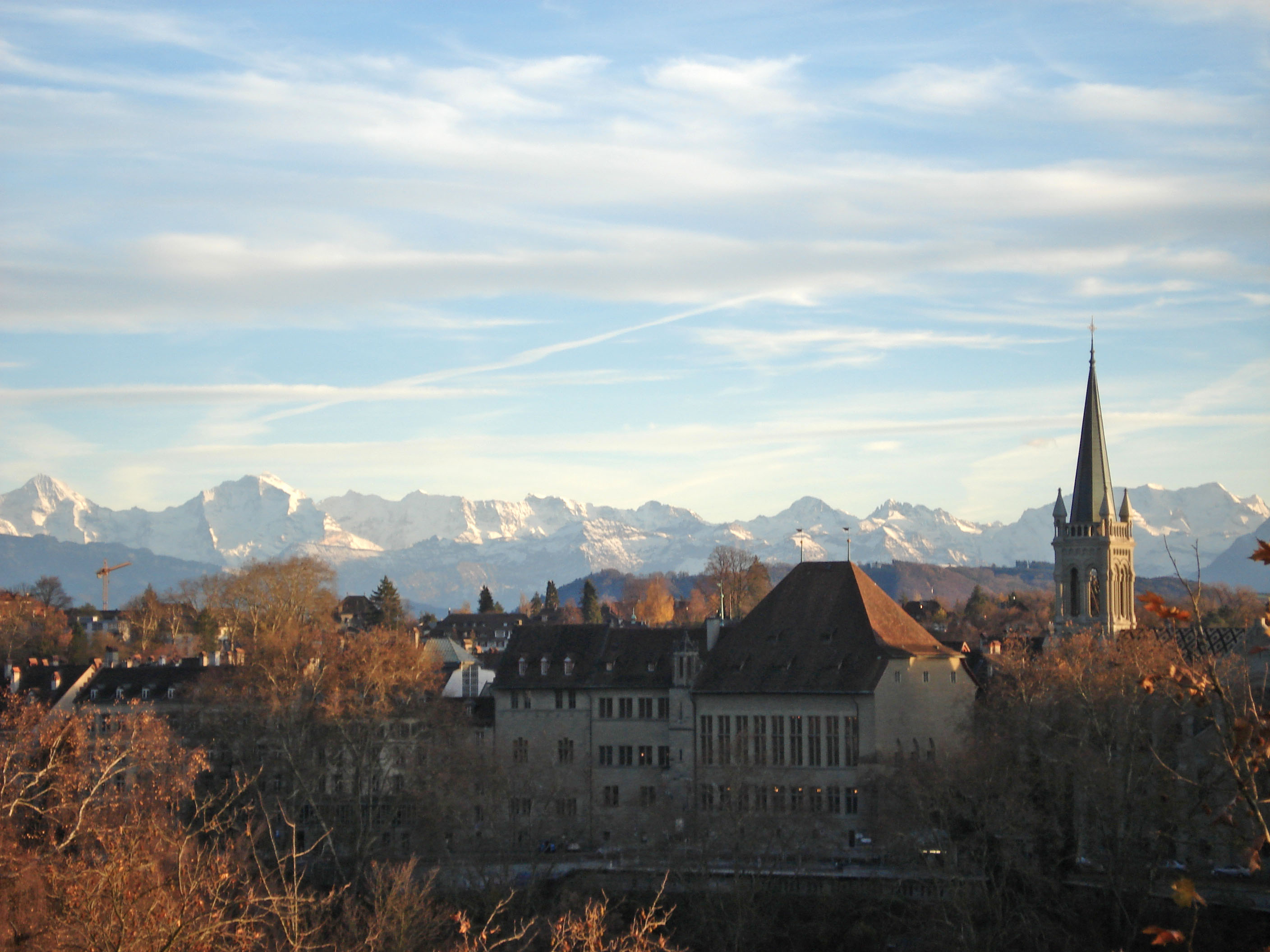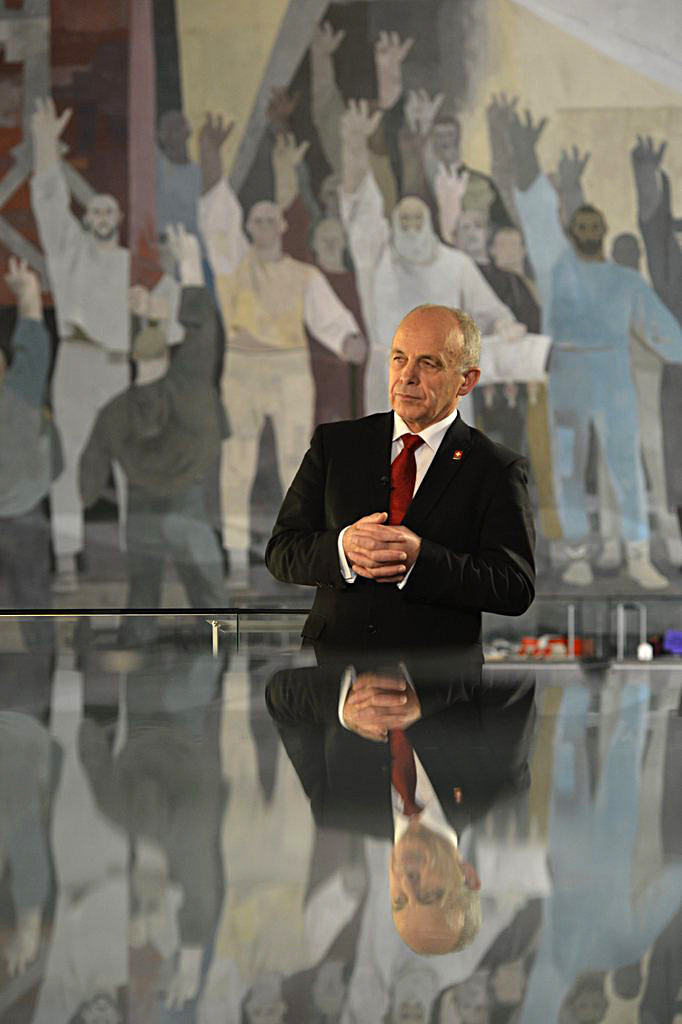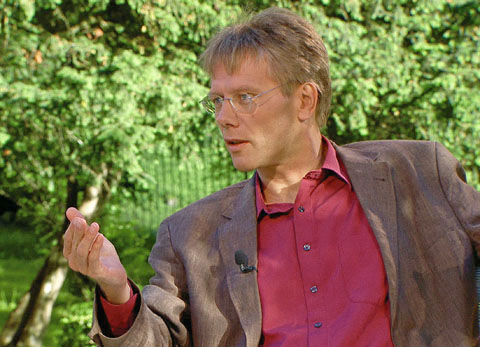‘Every generation creates its own view of history’

August 1 is dedicated to speeches and Swiss history. These provide an identity above all for those citizens who worry that global organisations and multinational concerns are calling the country’s identity into question, says historian Thomas Maissen.
The 50-year-old native of Basel has taught modern history at the University of Heidelberg in Germany since 2004. In September, he will become director of the German Historical Institute in Paris.
The specialist in Swiss history reflects among other things on Switzerland’s role and presence in the digital world.
swissinfo.ch: What does August 1 mean to you? What childhood memories do you have?
T.M.: Since childhood: fireworks. They fascinated our children as well. Plus, my mother-in-law’s birthday is August 1, so we often celebrate together.
swissinfo.ch: Have you ever given an August 1 speech? What was, or would be, your message?
Thomas Maissen: This year I’ve been invited to give an August 1 speech for the first time, in the city of Zug. I plan to reflect on how, for example, we make a distinction between Swiss citizens and non-citizens through the use of dialect.

More
Feeling at home away from home
swissinfo.ch: Does Switzerland need this national holiday? Twenty-two per cent of the Swiss population are foreigners, for whom this day probably doesn’t mean much.
T.M.: I doubt the foreigners stay home when there are celebrations going on everywhere – especially on a nice summer evening. And as a Swiss I can still take part in the German holiday on October 3 or the French holiday on July 14, and join the citizens of those countries in celebrating a comparatively happy present, in remembering important events of the past, and in hearing messages for the future, which generally aren’t designed just for a particular segment of the population.
swissinfo.ch: Have the contents of August 1 speeches changed over the years?
T.M.: Yes, that’s clearly been the case in the 100 years or so since there have been national celebrations. Earlier, in the face of external threats, listeners were exhorted to defend the community, with the emphasis being on military service. Today, in the face of an uncertain economic outlook, people are called on to stand together, to have a social conscience.

More
Swiss National Day
swissinfo.ch: In today’s digital world, how do you teach Swiss history, and in particular the history of the founding of the Confederation? How do you make complex interrelationships understandable for internet users?
T.M.: I’m not sure there was much interest in a complex retelling of Swiss history even before the internet. Swiss history has been reduced to a few heroic events and heroes – whether true or false – from William Tell and Arnold Winkelried to Huldrych Zwingli and Jean Calvin [leaders of the Reformation] to Henri Dunant [inspired the creation of the Red Cross] and Henri Guisan [Head of the Swiss Army during the Second World War]. How many Swiss can say when and under what circumstances the individual cantons joined the Confederation?
It’s possibly also not all that important. Historical knowledge is transmitted on more levels and by more media – schoolbooks, newspaper articles, historical novels and scientific research – and its interpretation is the cause of more disagreements.

swissinfo.ch: What can you do as a historian to ensure that your research gets more attention?
T.M.: There’s plenty of interest in history, but not necessarily for a scholarly article with footnotes. A researcher who wants to reach a broader public has to use basic language, clear and without technical jargon. For some historical themes that’s easy, and for others it’s not.
As an example, my book History of Switzerland sold very well and is in its fourth print run. Historians do not get less respect from society than other researchers, and sometimes we get more.
The Rütli meadow in canton Uri is considered the birthplace of the Swiss Confederation. On August 1, 1291, representatives of cantons Uri, Nidwalden and Schwyz signed a peace agreement there, the oldest of its kind reflected in a document.
In 1940, the head of the Swiss army, General Guisan, gave a historic speech from the Rütli in which he called on the assembled officers to resist any invasion by troops from Germany. This year Economics Minister Johann Schneider-Ammann gives a speech on the Rütli as part of the national celebration.
In 2000 and 2005, the event was disturbed by a group of Neo-Nazis who were holding their own August 1 celebration there. In 2013, for the first time in 15 years, rightwing extremists announced they would not hold their celebration on the Rütli.
swissinfo.ch: It’s said that history is a construct, and every generation creates its own view of history. True?
T.M.: Every story that is told, whether orally or in the form of a film, is constructed. When you recount what you did yesterday, you leave out things that are unimportant to you – although they might be important for someone else – you use a common thread to join sometimes unrelated events, you jump backwards and forwards in time. Sometimes you fib a little or paint a good picture of something – usually your own role in the story.
History is no different. As a result, it’s not necessarily true that every generation needs its own version of history, but often other versions are created. Sometimes multiple, different versions. There are enormous differences between the views of history held by [former justice minister from the rightwing Swiss People’s Party] Christoph Blocher and [former cabinet member from the centre-left Social Democratic Party] Ruth Dreifuss. And yet both are Swiss.
That they and other politicians speak out about Swiss history has to do with the fact that experiences and supposed lessons from the past are expected to provide guidance for the construction of an always risky future. The nation remains a very important unit.
At the same time, there are challenges to a country’s identity from organisations like the United Nations, the European Union, and tribunals, from non-governmental organisations and multinational companies, as well as from federalists and separatists. Therefore, many people think long and hard about the advantages of promoting feelings of belonging. That’s true in Switzerland as well.
swissinfo.ch: So what role does history play in society?
T.M.: Memories of a common past are a sort of glue that holds groups together – and especially countries that lack a common language or confession, such as Switzerland. A state is thus always interested in the creation of such common memories, and in what they look like.
In a democracy the state doesn’t create any guidelines – rather it leaves the negotiation of historical images to politicians, the media, scientists and researchers and all the citizens who belong to these groups.
(Translated by Jeannie Wurz)

In compliance with the JTI standards
More: SWI swissinfo.ch certified by the Journalism Trust Initiative
You can find an overview of ongoing debates with our journalists here. Please join us!
If you want to start a conversation about a topic raised in this article or want to report factual errors, email us at english@swissinfo.ch.